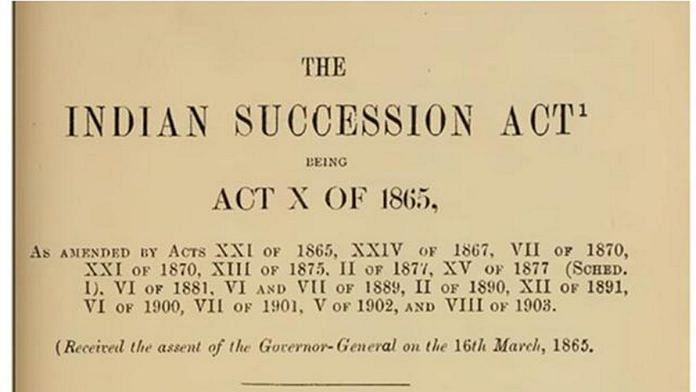A modern Uniform Civil Code should rewrite the law on wills to make it simple and comprehensible for Indian citizens. However, the Uttarakhand government’s UCC, in which over 300 of the 392 sections deal with wills and the administration of estates, is a monumental failure in this regard.
Currently, the Indian Succession Act 1925—a bulky, overly prescriptive, and inaccessible legislation—governs wills. The ISA’s sheer length betrays a disturbing colonial assumption—that ‘natives’ were not to be trusted when it came to documentation, especially writing, attesting to, or interpreting wills.
In 1865, the British enacted a law on will-making, but kept Hindus and Muslims out of its scope. They used English law as the base, picking and choosing provisions from multiple provincial laws and adding rules laid down by courts for validating and interpreting wills. Over time, community-specific legislations to regulate wills made by Hindus and Muslims were enacted and courts continued to issue varying interpretations. In 1925, the British Parliament decided to consolidate these diverse laws into one—the ISA.
The entire Act applies to wills made by Christians and Jews in India. For Hindus (including Sikhs, Jains, and Buddhists) and Parsis, the Act applies with some exceptions. It is not applicable to Muslims. Uttarakhand has simply copied all the ISA’s provisions into its code, applying them uniformly across religions. Since the 1925 Act is based largely on the 1865 one, Uttarakhand’s brand-new law on wills is, technically, almost 160 years old.
Of course, there is no harm in copying per se. When drafting laws, it is always advisable to use an existing legislation as the base. But the UCC is a legal reform project—an opportunity to improve family law by making it fairer and more accessible. Unfortunately, the Uttarakhand UCC fails on this count.
Also Read: Uttarakhand UCC delivers status quo for wives & mothers, while promising ‘gender justice’
What should a 21st–century law on wills look like?
First and foremost, a law on wills should be simple and pithy. Broadly, it should cover who can make a will, as well as how the document is to be written, signed, and witnessed. Most countries follow this format, with legislations that are easy to read and understand. The UK’s law contains 35 sections, South Africa’s 9, and New Zealand’s 41. The laws in Canada and Australia, which are province-specific, range between 50-100 sections. This brevity makes a court’s job in interpreting and implementing the will much easier.
In contrast, the over-prescriptive ISA, now reproduced in the Uttarakhand UCC, encourages probate courts in India to adopt a rigid, formalistic attitude while examining wills. This approach insists on procedures that even the law does not require. In one case, a will was invalidated merely because the typist who transcribed it for the testator (the person making the will) did not record his own name on the document. Making a legally valid will without professional advice is very difficult. The costs involved mean that very few Indians (less than 10 per cent) make wills. Most Indians, therefore, have little control over what happens to their property after they die.
Second, the law should recognise digital wills. During the pandemic, it was impossible for witnesses to fulfill the requirement of being physically present while a will was being physically executed. To resolve this, several countries (the US, UK, Canada, Australia, and South Africa) changed their law to permit witnesses to attest a will remotely over video conferencing while the testator executed it electronically. Even generally, digital wills are more secure and easier to preserve.
Third, emergency wills should be recognised in law. Most countries relax the will-making procedure for people in an emergency or facing imminent death. But under the ISA, as well as the Uttarakhand UCC, the benefit of such ‘privileged’ wills is only available to military personnel who are engaged in an expedition or warfare. This limitation makes little sense if the objective is to honour a person’s dying wish. Civilians in life-threatening situations such as accidents, earthquakes, and floods should also be allowed to make privileged wills.
Paradoxically, Uttarakhand may have refrained from reforming wills simply because this area of law is too complex and inaccessible. But this is no excuse for a legal reform project as critical as the UCC. As other states draft their own versions of the UCC, they must deliberate more thoroughly on how citizens can be empowered with respect to their legacies.
The authors are with the Vidhi Centre for Legal Policy. Views are personal.
(Edited by Asavari Singh)



